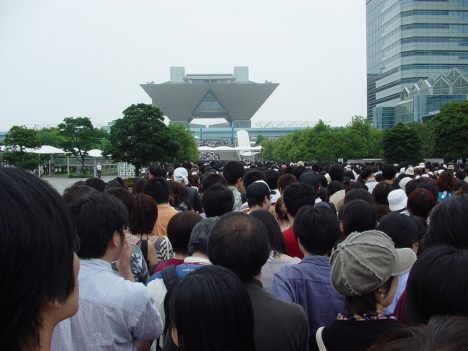A recently published study on the “otaku” market finds that as many as 25% of Japanese may now consider themselves otaku, an increase of 5% on the previous year.
According to a multi-channel survey of 10,102 people undertaken by the Yano Research Institute, Japan’s oldest market research firm, 25.5% of those asked whether they consider themselves otaku or have been labelled otaku by others responded in the affirmative.
Compared to the 2010 edition of the same survey, this represents a 5.1% increase in the otaku population.
The survey also noted much growth in certain “otaku” markets – online gaming saw a 40% increase to 299 billion yen, and the market for dating games grew 30.2% to 11 billion yen, although these increases are attributed to the rise in social gaming and dating simulations marketed to women on mobile phones – hardly qualifying as “light otaku,” let alone “otaku.”
The market for digital comics also saw dramatic growth, although this is widely interpreted as the result of long-delayed technological change rather than actual growth – traditional manga sales continue to decline.
The market for idols, long considered the preserve only of the very creepiest otaku, is also growing, although this has been attributed to more efficient exploitation of existing otaku rather than an increase in the number of consumers.
Yano’s conclusion is that the “otaku” market is growing, but that it is also being heavily supplemented by the participation of non-traditional otaku – although with a limited population available in Japan, they stress the need to market more to non-Japanese markets.
There is some scepticism about their results when it comes to otaku population size, although Yano is a credible market research company and other studies have found similar increases in populations identifying themselves as “otaku” in recent years.
As the survey seems comparatively sound, those who are sceptical of such vast growth in the “otaku” population tend to identify the fact that such surveys invariably base their results chiefly on respondents self-identifying as “otaku.”
The term “otaku” has no real objective definition and has increasingly found itself used by non-traditional otaku to mean “anime and manga fan” rather than the more classic “obsessive maniac” – this has led to a lowering of resistance to the label and large numbers of normals identifying themselves with a now trendy label, runs this line of thought, commonly espoused on 2ch.
As a result of this, terms like “kimo-ota” (“kimochi warui” or “kimoi” otaku – “creepy otaku”) now take on the negative nuance once so strongly attached to “otaku,” whilst (amongst some at least) identifying as an otaku becomes a point of pride.
There is also some disdain on traditional haunts towards “self-proclaimed otaku,” who are regarded merely as fad-following normals rather than true obsessive maniacs.
Whatever the case, critics cannot help but note that such dramatic increases in the otaku population do not seem to have been accompanied by similarly sized increases in anime and manga sales, or even any increase at all…







I used to consider myself an otaku. But after objectively comparing my lifestyle to those portrayed as examples, I begin to doubt myself.
Otakus are fine….. I guess. ;-;
Here is the new Otaku anthem entitled “Otaku Back”.
Here’s how some of it goes
I’m bringin Otaku back (Yeah)
Them other boys don’t know how to act (Yeah)
I think your special, where’s the hentai at (Yeah)
I’m Otaku, girl you better watch your back (Yeah)
Timbaland: Take em to the chorus!!!
Why am I suddenly reminded of Otaku No Video?
Stands to reason, though, that there are varying levels of otaku-dom. There are those who are occasional patrons just as there are those who let their anime/manga obsession completely dominate their lives. Sadly, too many of the folks who patronize anime and manga (or this very site, for that matter) are dismissively lumped in with the latter.